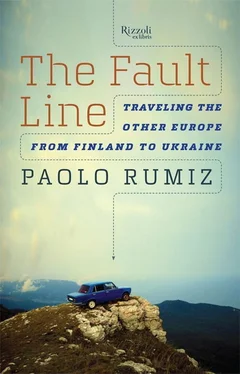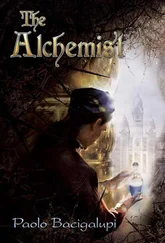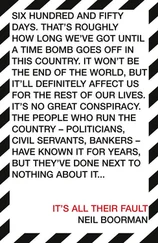“What a winter that was. The river thawed without warning and dragged away dozens of people who tried to hang on to chunks of ice. It was March 16. A German tank tried to get through and hit a mine that killed a lot of people.”
Today there is only silence, a cool breeze, and the burbling of the water in the twilight.
The first stars come out. Viktor has gone to close his dovecote. Lyuba invites us to come back tomorrow morning to drink some fresh goat’s milk. We climb slowly back up to the castle on a labyrinth of stairs. From the top, we look back down on the lights of Karavasari with all the characters of the story—the Turks, the Jews, the Poles, the merchants, the boatmen, and the horses drinking at the river. There’s also Lyuba, going back inside the house with her goats, and nearby a group of young people pitching their tent for the night on an emerald-green meadow next to the river. Still farther, a horse grazing. They’re all moving inside the same story, written long ago.
“Ah, come on, you don’t see the Cold War coming back?” an amazed Maxim asks me at the station in Khmelnytsky, where we’re waiting for the train to Odessa in a placid golden-wheat evening. Maxim Apostol is a Ukrainian medical student, cheery and well nourished, with long black hair like Gogol’s, and he looks at us with his mouth agape and eyes wide open to mime the fear that’s on the horizon. He’s an accomplished ham. He hunches his back, contracts his neck, embraces his elbows, and pretends his teeth are chattering, as though a sudden gust of cold wind from the north had turned the season inside-out, sweeping the countryside free of ripe wheat, reapers, and farmers.
“Where do you live, you Westerners? Everybody knows that the Caucasus is about to explode. Putin wants to keep it under control, and the Americans want to build military bases there. Plus there’s the oil under the Caspian Sea…. See what you think…. To me it seems like enough and then some.” Then he adds, “We can feel the tension really well. The frontier between East and West passes right through here.” He asks me if I know what Ukraine means, and I reply that I know, and how: it means “frontier.” In Croatia, too, there was a krajina —a strip of frontier with a Serb majority—that in 1991, instigated by Belgrade, inflamed all of Yugoslavia. “Exactly,” he responds, “I see that you’ve understood perfectly. If Ukraine stops being what it has been for centuries, that is, a buffer, to enter into an alliance with the West, all hell will break loose. The country, which is pro-Russian in the east, will split into two, and then Moscow will intervene. Let’s not even talk about the Caucasus. Stalin filled it with enclaves, ethnic mines to foment conflict and facilitate control by Moscow, and Putin can set them on fire whenever he wants.”
I know. Since Murmansk, I’ve been zigzagging down a long krajina inhabited by frustrated ethnic minorities ready to let themselves be set on fire. And ever since the Barents Sea, I can feel the growing tension of the East-West confrontation, as though a new Iron Curtain were forming a few hundred miles to the east from the old one: Poles and the Baltic peoples against Moscow, Russian military deployments on the border with Finland, endless complications in getting our visas, the enlargement to eighteen miles of the frontier strip under control of Moscow’s police and army, barbed-wire fences between Poland and Ukraine.
What if this visionary is right? For too long, since the fall of the Berlin Wall, we’ve been living in the atmosphere of a feeble-minded thaw, as if Russia had not become the master of Europe’s energy supply, as if it were a flabby giant incapable of reacting. I’ve been traveling for more than a month along a seismic fault that’s only apparently dormant. I’ve passed through customs, barbed wire, barriers guarded by towers and spotlights. I’ve experienced seizures of goods, interminable delays, arrests, relentless scrutiny of visas. Crossing the border of the European Union over and over, I’ve felt chills down my spine more than once, but I’ve never thought of the Cold War. Now, in the middle of the train platforms inflamed by the sunset, I feel like a cat that has crept by under the bear’s nose without waking him up. Maybe Maxim is right; the frontier is moving back into the cold.
I recall Viktor Ivanovich, the pilgrim on the banks of the White Sea who prophesied a war starting at the Beijing Olympics. I can see him now: a meek, robust man with big hands and a Mormon’s beard without a mustache, wearing a thick overcoat and carrying a haversack. I had totally forgotten about him. I open my backpack and look through my notebooks. In the second one, on page thirty-one, my summary of that strange encounter. Written in a hurried scribble is: “1 July. Viktor Ivanovich, 1940, born in Sumy, Ukraine.” Then, “Prophecy, monasteries, war with Olympic games.” And then, “2008 a bad year, 2012 too. Still a month left.” Then I noted the names of the monasteries: Svensky Monastery near Bryansk, Torodalmatov, in the Urals. Solovetsky. Everyone in the monasteries knew that a war was about to break out. I asked him where, and Viktor answered, “In the mountains.” He said he had given up his Ukrainian passport for a Russian one, and he spoke with irritation about the Chechen mafia, which in his words had taken possession of the port of Sumsky Posad where the Suma River empties into the White Sea. He was one strange pilgrim who knew too many things. I didn’t pay him much attention then, but now, here with Maxim, that warning starts to get to me. It gets to me even more a week later when, on August 7, 2008, the war in Georgia begins.
In front of the station, under the statue of the hetman Bogdan Khmelnytsky, the student goes on. He says that everything is changing, that Russia is becoming a threat again and the West has no idea how to deal with it. “You can’t claim independence for Kosovo and then not agree to autonomy from Georgia for Ossetia.” Then he tells us about Crimea, which until yesterday was full of vacationing Russians at the seaside but now has no more tourism because Ukrainians don’t want to go to a place that has hosted so many Muscovite occupiers. “If you like extreme journeys,” he laughs, “go to Crimea. The mountains have again become a wild pastoral land, like they used to be.”
It is July 31. The train pulls out of the station, rattling its way across the plain, and I lie down on my bunk to ruminate. Forgotten details from the journey come back to mind: faces and words that initially seemed to be pure, insignificant choreography but now become meaningful. Vadim, for example, the turbo-Orthodox encountered in Estonia. He prophesied unprecedented conflicts between civilizations. Not between Christians and Muslims, but between Catholics and Orthodox. I think back to the drums of war that inflamed Belgrade in 1989, the gatherings of warmongers on the Kosovo Polje, the Blackbird’s Field, blessed by Orthodox popes and archimandrites. I recall the tension constructed around the monasteries of southern Serbia. Now again in Ukraine I can smell the odor of incense. Why is it that the Russians who frequent the monasteries know so much in advance?

13. BLACK SEA
WE GET INTO ODESSAin the early morning and go to see the Uspensky (Assumption) Cathedral, near our hotel. We go down to the crypt, where a miraculous Madonna is on display. Men and women, old and young, genuflect—some with their forehead touching the floor, as though they were Muslim—then they get in line to kiss the holy icon. Outside, at a newsstand, a newspaper has a headline about the American Sixth Fleet having entered the Black Sea. Not far away, at the corner of Uspenskaya and Osipova streets, Jews in prayer dress are walking toward the Malbish Arumim (Clothing for the Naked) Synagogue for Shabbat. We follow them. They let us come in without even checking our backpacks. They hand us a brochure in English that talks about the “Jewish reawakening” after the season of Communist atheism and the great escape to Israel. It all feels strangely like Trieste.
Читать дальше













